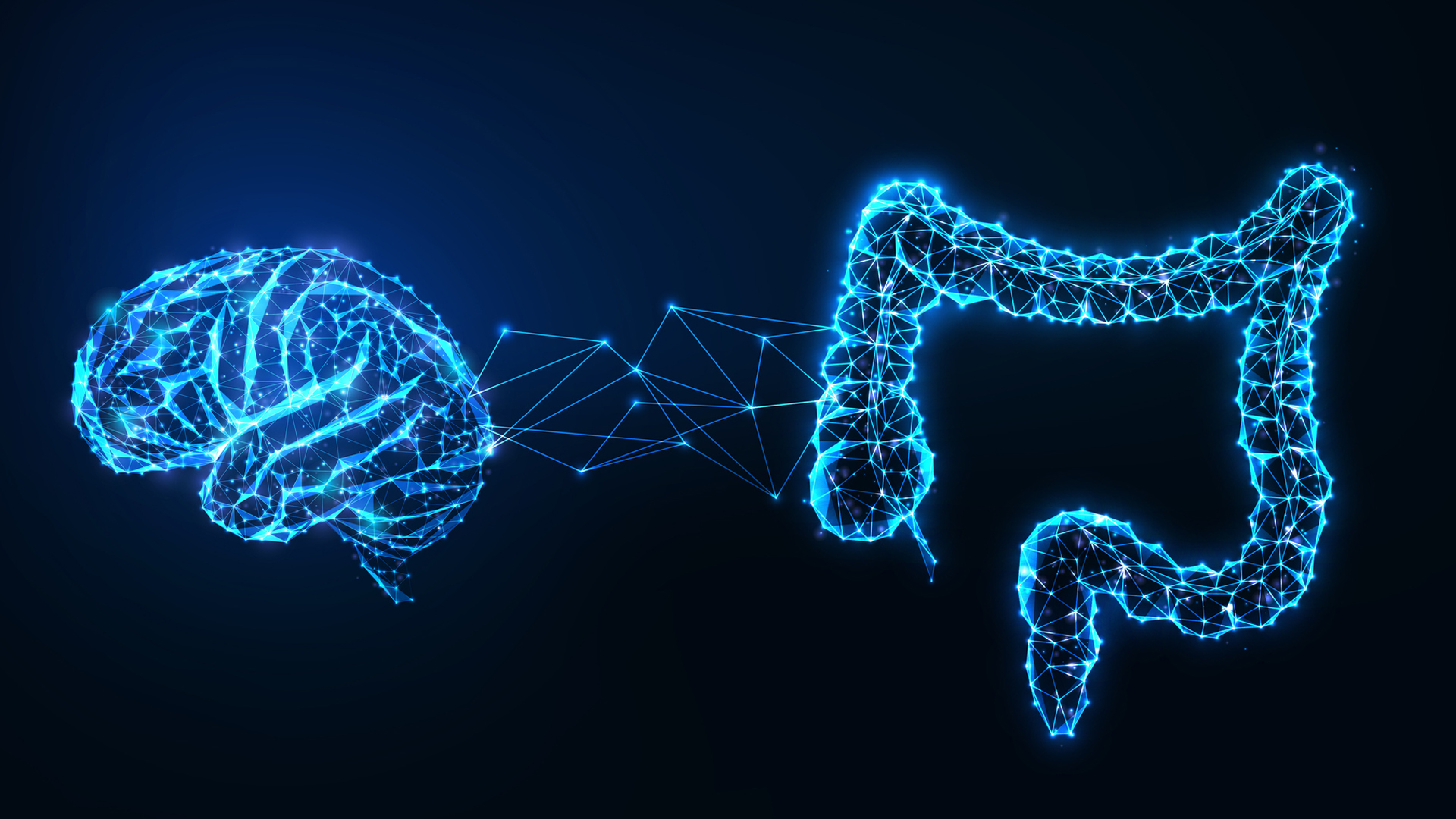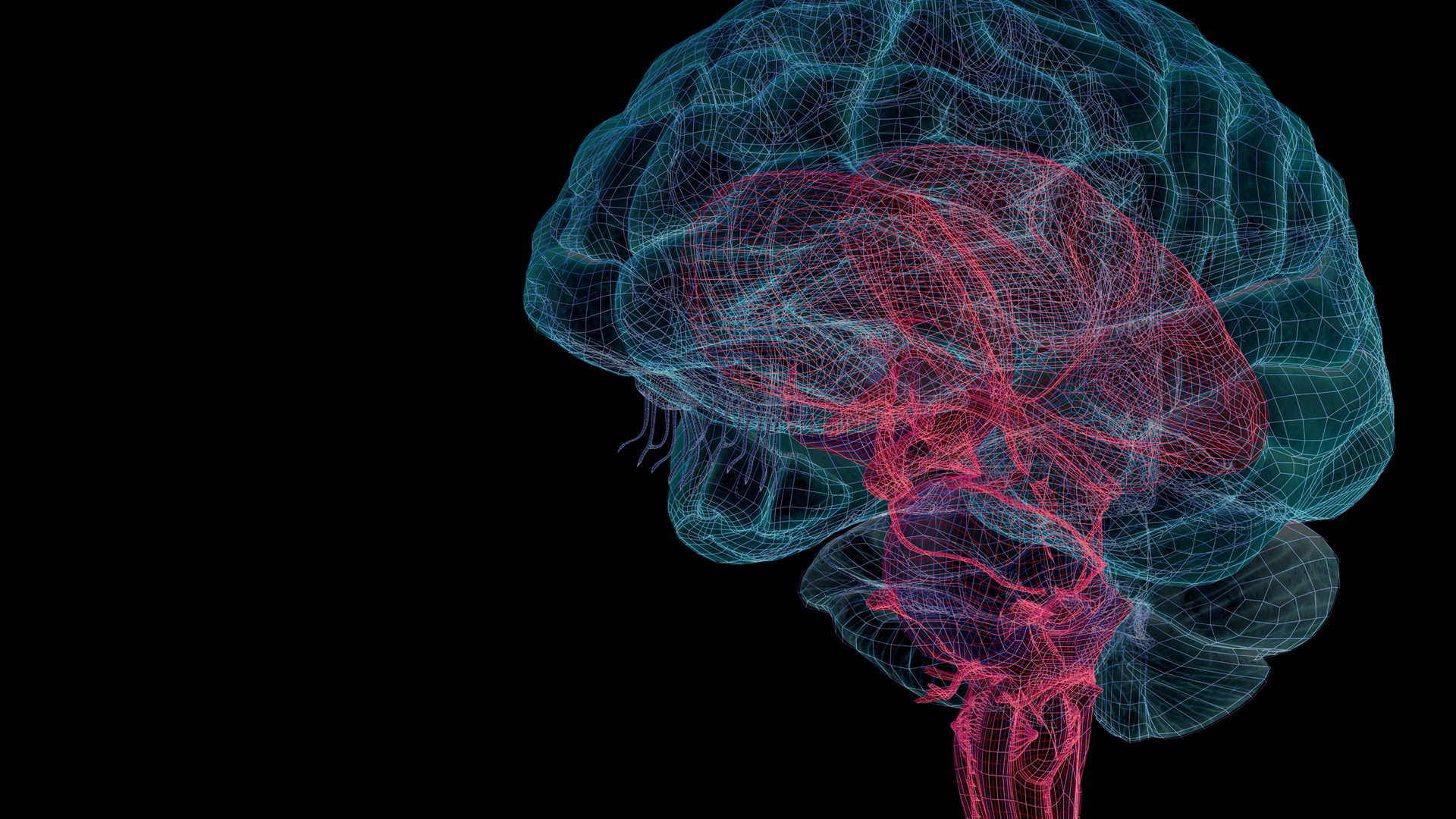Gut-brain axis: How it works and its link to mental health
The gut-brain axis refers to the connection between the gut and the brain.

Whether it’s a nervous sensation in the stomach before an important presentation or "butterflies" at the sight of a loved one, many people are aware of the connection between the gut and the brain. But the gut-brain axis is a real phenomenon, describing a two-way communication between the central nervous system (CNS) and the enteric nervous system (ENS).
But with several different communication methods in both directions, scientists are still establishing exactly how it works. Here, we've unpacked some of the potential mechanisms behind the gut-brain axis and their implications for mental health.
What is the gut-brain axis?
Grace Derocha, a registered dietitian in Chicago and a national spokesperson for the Academy of Nutrition and Dietetics, said that the gut-brain axis is a two-way communication that takes place between the gastrointestinal tract and the central nervous system.
"It links emotional and cognitive centers of the brain with intestinal functions," she said. "A troubled gastrointestinal tract can send signals to the brain, just as a troubled brain can send signals to the gut."
This gut-brain communication happens through a sophisticated network with multiple pathways. Here are some of them.
Chemicals produced by gut microbes
Jane Foster, a professor of psychiatry at UT Southwestern in Texas, said that a key player within this communication system is the gastrointestinal tract, home to trillions of microbes.
A person's diet has a significant impact on these microbes. Fiber, for example, is fermented by gut bacteria, which produce metabolites called short-chain fatty acids. These include butyrate, propionate, and acetate. According to a 2020 study, published in the journal Molecular and Cellular Neurosciences, short-chain fatty acids have the power to cross the blood-brain barrier, where they can impact brain structure and function.
Inflammation
"The immune system is part of the gut-brain axis and is an important signaling cascade from microbes to the brain," said Foster.
An imbalance in gut bacteria — known as dysbiosis — causes the barrier between the gut and the bloodstream to become permeable. This can allow "bad" bacteria to enter the bloodstream, potentially causing inflammation. A 2020 review, published in the journal Frontiers in Immunology, suggests that dysbiosis also alters the blood-brain barrier, contributing to inflammation of the brain matter. Inflammatory pathways have been linked to neuroinflammatory conditions including multiple sclerosis, Alzheimer’s and Parkinson’s diseases, as well as anxiety and depressive-like disorders.
The vagus nerve
The human gut contains nearly 500 million neurons which are connected to the brain through nerves. The vagus nerve is one of the biggest nerves connecting the gastrointestinal tract to the nervous system and plays many important roles in the body.
Psychological stress, for example, may have a particularly harmful effect on the vagus nerve, with a 2014 study, published in the journal PLOS One, finding it may be involved in the development of gastrointestinal disorders like irritable bowel syndrome and inflammatory bowel disease.

Neurotransmitters
The gut and the brain also communicate through chemicals called neurotransmitters. Some of these neurotransmitters are produced in the brain and are involved in regulating emotions, mood and the "fight or flight" response.
They can also be produced in the gut, affecting aspects of digestive, according to a 2016 review published in the Journal of Cellular Physiology. It found that neurotransmitters including norepinephrine, epinephrine, dopamine, and serotonin are able to regulate and control blood flow and affect bowel movements, nutrient absorption and the composition of the microbiome.
Gut-brain axis and mental health: What’s the link?
Whilst there is emerging research, we're only just beginning to understand the nature of the relationship between the gut-brain axis and mental health. Much of the evidence is based on animal research, so it is hard to draw conclusions about how this translates to humans.
It's also hard to establish cause and effect when it comes to the relationship between the gut and the brain.
"A person's intestinal distress can be the cause or the result of anxiety, stress, or depression," said Derocha.
Diversity and balance are hallmarks of a healthy gut microbiome. Research suggests there might be links between the types of microorganisms in a person's gut and their mental health.
"The microbiome of a person with a mental health problem is different from a healthy person," said Foster. "Alzheimer's disease and Parkinson's disease are [also] linked to a different profile of microbes in the gut."
A 2021 review, published in the journal Pharmacological Research, suggests that poor gut health may contribute to the onset and progression of mental health conditions, including depression and anxiety. In patients suffering from depressive disorder, levels of Enterobacteriaceae and Alistipes ("bad" bacteria) were enhanced, whilst the level of Faecalibacterium ("good" bacteria) was reduced. The researchers also found that there was less diversity in gut bacteria in patients with mental disorders, as well as a decrease in bacteria producing short chain fatty acids. However, again, it is not clear whether changes in gut bacteria influence mood disorders or vice versa.
Nutrition and mental health
Probiotics — beneficial bacteria found in fermented foods and dietary supplements — can support gastrointestinal health, according to a 2016 meta-analysis published in the journal PLos One. A promising new field known as psychobiotics is considering the role that probiotics could play in alleviating mental health symptoms. However, further research is needed.

Cognition and memory
Emerging evidence identifies a correlation between the gut microbiome and cognitive performance. A 2017 study, published in the Journal of the International Neuropsychological Society, found a link between gut microbiome composition and cognition in older adults. Individuals with lower proportions of Bacteroidetes and Proteobacteria and higher proportions of Firmicutes and Verrucomicrobia performed significantly better on tests associated with attention, learning and memory.
This article is for informational purposes only and is not meant to offer medical advice.
Sign up for the Live Science daily newsletter now
Get the world’s most fascinating discoveries delivered straight to your inbox.

Anna Gora is a health writer at Live Science, having previously worked across Coach, Fit&Well, T3, TechRadar and Tom's Guide. She is a certified personal trainer, nutritionist and health coach with nearly 10 years of professional experience. Anna holds a Bachelor's degree in Nutrition from the Warsaw University of Life Sciences, a Master’s degree in Nutrition, Physical Activity & Public Health from the University of Bristol, as well as various health coaching certificates. She is passionate about empowering people to live a healthy lifestyle and promoting the benefits of a plant-based diet.










